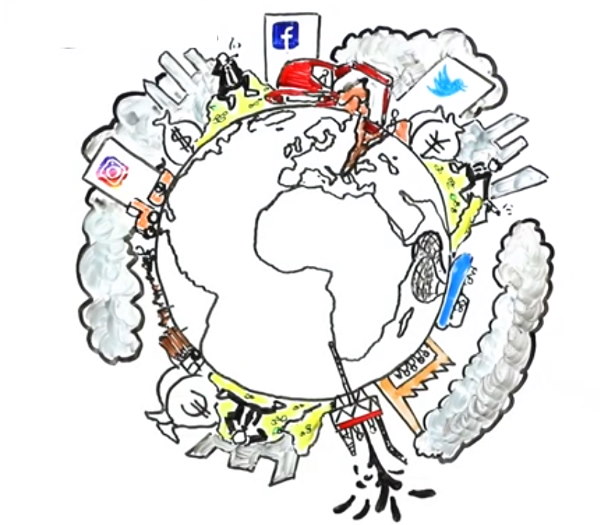
- This event has passed.
The Truth About Nature: Environmental politics in a post-truth, digital world
A presentation by Bram Büscher, author of The Truth about Nature: Environmentalism in the Era of Post-Truth Politics and Platform Capitalism, followed by roundtable discussion with Elizabeth Havice and Max Ritts. Moderator: Amber Huff
Watch the video
Video (120 minutes) of the whole discussion is available.
About this event
 How should we share the truth about the environmental crisis? At a moment when even the most basic facts about ecology and the climate face contestation and contempt, environmental advocates are at an impasse. Many have turned to social media and digital technologies to shift the tide—but what if their strategy is not only flawed, but dangerous?
How should we share the truth about the environmental crisis? At a moment when even the most basic facts about ecology and the climate face contestation and contempt, environmental advocates are at an impasse. Many have turned to social media and digital technologies to shift the tide—but what if their strategy is not only flawed, but dangerous?
Bram Büscher’s new book The Truth about Nature follows environmental actors as they turn to the internet to save nature. It documents how conservation efforts are transformed through the political economy of platforms and the algorithmic feeds that have been instrumental to the rise of post-truth politics.
The book will be out on 15 December 2020 and can be ordered online from University of California Press.
Event info
This event is the last in a series on the theme of Natures organised by the ESRC STEPS Centre in 2020.
Nature is all around us, but there are many ways of seeing different kinds of ‘natures’, and many efforts to involve it in forms of control or domination. How is talk of crisis shaping nature and people’s views of it? How can colonial forms of knowledge, technology and power be challenged, and what might it mean to decolonize the study of environmental change? What do alternatives look like, and how can we explore, nurture, imagine and live the relationships we might want for the future?
About the speakers
Bram Büscher is Professor and Chair of the Sociology of Development and Change group at Wageningen University and holds visiting positions at the University of Johannesburg and Stellenbosch University. Bram has published widely on the relations between nature, development and politics and is the author of ‘Transforming the Frontier. Peace Parks and the Politics of Neoliberal Conservation in Southern Africa’ (Duke University Press, 2013) and co-author, together with Robert Fletcher, of ‘The Conservation Revolution: Radical Ideas for Saving Nature Beyond the Anthropocene’ (Verso, 2020). Bram is one of the senior editors of Conservation & Society.
Elizabeth Havice is associate professor of geography at the University of North Carolina at Chapel Hill. She uses the lens of governance to explore distributional outcomes in marine resources sectors and spaces, food systems, global value chains and is presently examining the intersection of big data and oceans governance. Current projects include co-editing (with Matt Himley and Gabriela Valdivia) the forthcoming Handbook of Critical Resource Geography and the co-founding (with Lisa Campbell) of the Digital Oceans Governance Lab.
Max Ritts is an environmental geographer and postdoctoral fellow at the Swedish University of Agricultural Science (SLU). His work operates at the intersection of political ecology, sound studies and critical indigenous studies — themes brought together in his book project, A Resonant Ecology (Under Contract at Duke University Press). Current research projects include the relation of bioacoustics to corporate audio-surveillance practices, the elaboration of “smart” marine governance schemes, and Adorno’s relevance for studies of the irrational in the contemporary politics of nature.
Moderator: Amber Huff. Amber is convenor of the STEPS Centre’s 2020 theme of Natures. She is a social anthropologist and political ecologist. Her primary areas of focus include politics of conservation, resource struggles and conflict, environmental policy, rural livelihoods and human adaptability and the politics of indigeneity and autochthony within resource struggles in southern Africa. Amber is a Research Fellow at the Institute of Development Studies, where she is co-convenor of the Resource Politics Cluster, and a member of the ESRC STEPS Centre.
